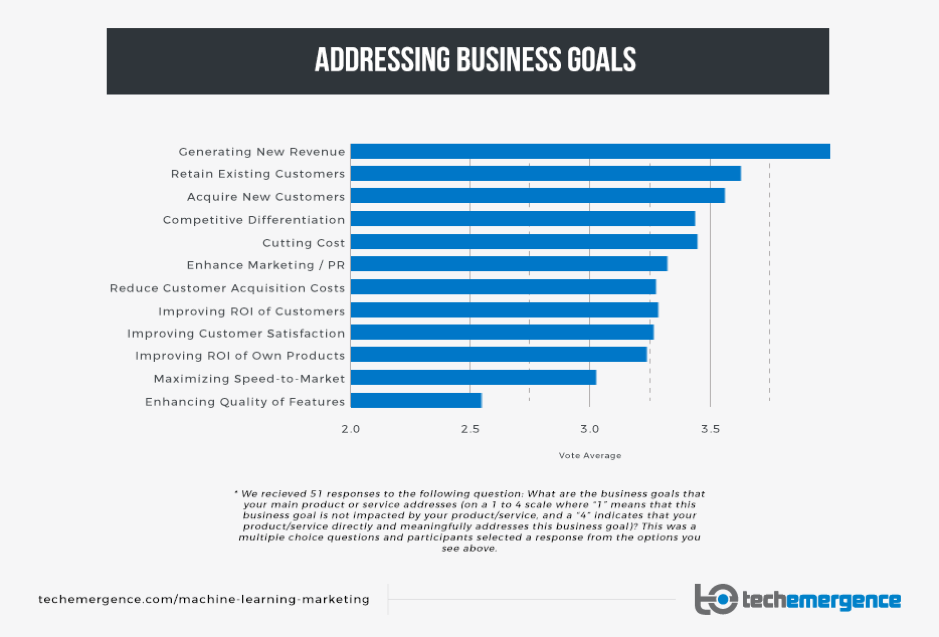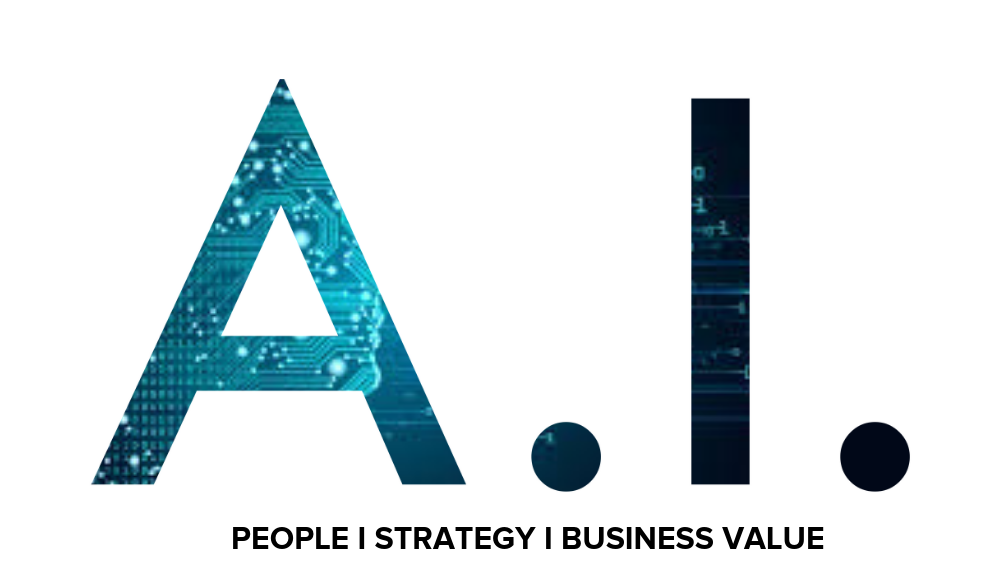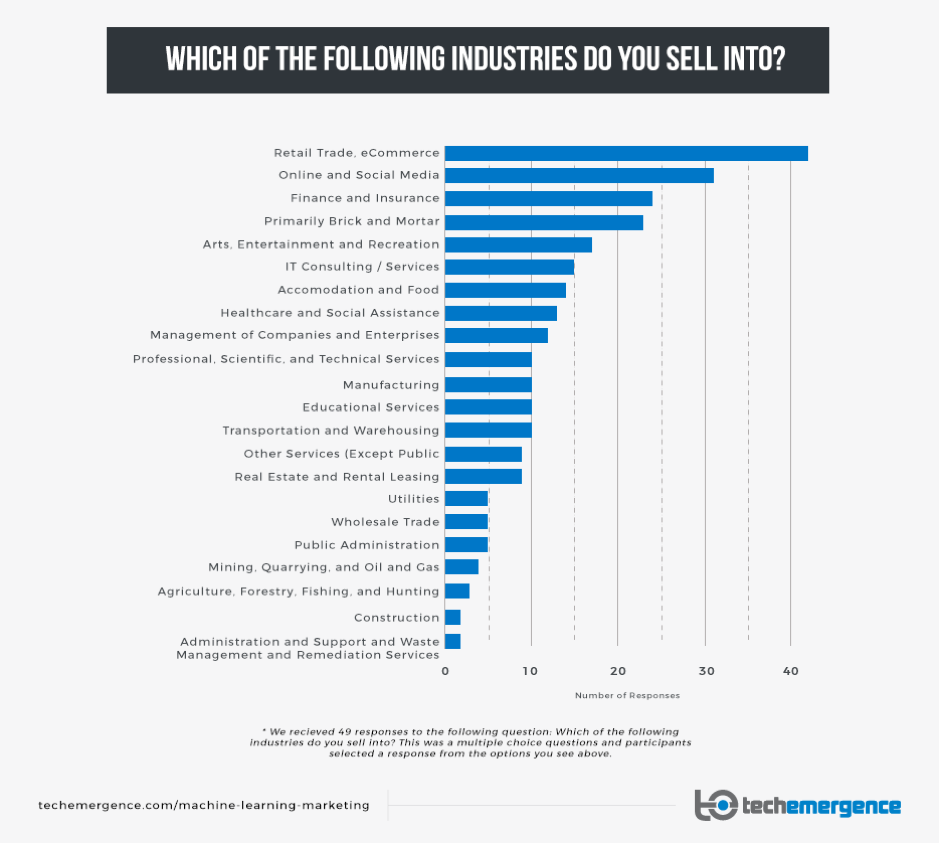Artificial Intelligence (or AI) remains a much misunderstood technology, and many business leaders (perhaps you among them?) are either wary of it, or simply don’t yet see how it applies to their business.
That’s partly because there are so many myths and half-truths being circulated about AI that it’s hard to separate the real from the fanciful, and the positives from the negatives. But make no mistake, AI isn’t all about robots and driverless vehicles. Its potential for business transformation is huge, and to keep ahead of the competition you need to be thinking now about how your digital transformation strategy incorporates AI for future growth.
What do we really mean when we talk about AI?
AI isn’t a new term; it was first used by Alan Turing around 1950. It refers to using machines to simulate or do ‘intelligent’ things – things that would normally be done be by people, using their cognitive faculties. The use of AI has accelerated in recent years (and continues to do so) because of the exponential growth in the availability of both computing power and data – today we all have supercomputers at our fingertips with our smartphones, (and are already using AI every time we use the spellcheck as we’re typing). Many e-commerce sites are also using AI as well as statistical methods when it comes to suggesting other things you may be interested in buying, or reading. So developments are going deeper and deeper into the capabilities of AI technologies.
As this McKinsey podcast transcript outlines, AI broadly encompasses five areas:
- Physical AI – robotics and autonomous vehicles;
- Computer vision – image and video processing;
- Natural language processing – particularly spoken language, but also involving some written language;
- Virtual agents or conversational interfaces – enabling systems to converse with you by voice or chatbots;
- Machine learning – perhaps the area with most growth potential right now – a good example of machine learning would be Siri or Alexa, every time you use it, it gets better at finding what you need.
Obviously, not all of these will be relevant to every business. So what you need to do is identify which areas are, or could be applicable to yours.
What does strategy AI-driven transformation look like in business?
Where companies are willing to invest, and use it to gain competitive advantage, AI can deliver real value. Marketing is an area where companies typically first recognise the potential, but AI can be used across all operations to increase efficiency and reduce costs.
This chart from techemergence shows the results of a survey of 50 executives at the forefront of using AI for marketing, designed to find out which AI and machine learning applications are driving

According to Andrew Ng, a premier AI researcher, the businesses taking AI seriously are “engaged in multidimensional chess games to collect the data they need to compete,” and having both mindset and capability to do this is essential for success.
AI, and in particular Machine Learning, could provide the most powerful tools to take your business to the next level. But don’t see it just as a bolt-on. If you look at where you already have a competitive advantage, that’s where you have the greatest strength, and where AI could give you the quickest ROI. What’s the next step? Where do you have the best data – machine learning requires a huge amount of it – and can start building competencies?
As Madhusudan Shekar. Principal Evangelist, Amazon Internet Services Pvt. Ltd, says in his techemergence podcast, “if you have an advantage over your competitors in the same area, applying machine learning could potentially give you a generational advantage. To do that requires a lot of clean data.”
Telecoms and financial services can use AI across functions, in customer services and in their core areas; the automotive industry can use it to improve operations, but also in vehicle development, including self-driving technologies.
You can listen to or read the full podcast here.
Whatever the areas of strategic investment in your business, also remember that AI can only build on the processes you already have. If your processes aren’t solid, and working well under human management, AI won’t fix them. In fact, it could augment problems.
This webinar from MITSloan covers five strategies for getting the most from AI in more detail.
What does AI mean for people and employment?
One of the big perennial myths surrounding AI is that it will replace the need for people, or leave only the low-skilled, menial jobs left for them to do. In fact, it’s quite the opposite. Like any other technology, AI takes over the simple tasks and does them more efficiently. That leaves the humans free to concentrate on the more complex, or creative aspects of the business, and creates a need for different skills. AI can’t compensate for the need for human interaction, relationship building or critical thinking. But it can take over simple tasks and make them more efficient.
There’s an in-depth article at Forbes.com that illustrates this idea really well.
So what we mustn’t forget is, that for every penny we invest in AI, as business leaders, we need to invest the same in people – whether that’s in training them to use data-driven new technologies, or in changing their mindset to help them embrace change. You need to lead from the top down – and drive that culture change. You might not be the data scientist yourself, but you may need to be able to have meaningful conversations with them about the applications your business is going to use, so you’ll need to get a bit clued-up yourself.
Where will AI add the most business value?
If your business is new to the AI arena, you can learn a great deal from those early adopters who have already invested in it and are now starting to reap the benefits. Retailers, particularly online retailers, rely on AI robots to control stock, and utility companies use AI to forecast demand.
It’s all about data quantity and quality, so the moment, it seems likely that online businesses will benefit most from AI technology. ‘Bricks and mortar’ businesses have bigger challenges when it comes to streamlining their data collection and management. And businesses which already collect large quantities of data will have a better platform to build on.
McKinsey’s survey of over 3,000 companies globally who are already using AI showed that they tend to be operating in the digital arena, use AI to increase revenue as well as reduce costs, in the core part of the value chain, and, that, crucially, AI initiatives are fully supported by the executive leadership. At the moment, these companies also tend to be larger firms within their sector, mainly because of the level of investment involved.
The techemergence survey further identifies the sectors most likely to be engaging with AI, and particularly Machine Learning:
But whatever your business type, the first things to assess, before beginning to invest in AI, are where you already have an advantage and what you want to do with it. You need to ask yourself how you are collecting data and what kind of data it is, as well as assessing how reliable your data sets are.
Consider whether your best data sets are in your customer data or in operations.
Madhusudan Shekar points out that you may be able to use ready-made solutions like Amazon Polly or the Amazon Lex chatbot (he’s an Amazon Evangelist, you’ll find other options out there), which are available off-the-shelf so you can deploy them quickly and efficiently. But even with these solutions, the business value you get from them is only as good as your data. Around 80% of the work in machine learning is making sure your data can be trusted, and is clean and organised. Because that’s all your AI technology has to go on. Unlike a person, it’s not going to intuit – at least, not just yet. In five years’ time, who knows?
What is certain is that AI is here to stay. Your digital transformation strategy needs to recognise this, and to identify where your business strengths can be further bolstered by accumulation of high quality data, and the adoption of the right AI technologies for your business.



I believe that most people in the industry who know how to work AI will not share the competitive advantage. It’s much like MLM of the late 20th C.Those in the know keep it that way.
Interesting way of looking at it Chris and you’re probably not wrong except it’s more about IP these days.